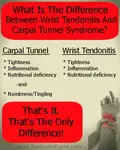Are Apple Cider Vinegar Arthritis Treatments Effective?
Apple Cider Vinegar Arthritis cure claims are easily debunked by 'science'.
Whether as an arthritis cure or even just arthritis symptom reduction, registered dieticians and the medical establishment call apple cider vinegar's effectiveness versus arthriitis a 'myth'.
But lots of people suffering from joint pain swear by it's ability to provide arthritis pain relief.
Ultimately, there's a lot of reasons to think that vinegar is a waste of time, effort, and hope. But then again, there's reason to believe it can be helpful.
NOTE: Apple Cider Vinegar = ACV
Apple Cider Vinegar Arthritis
Relief Claims Review
Let's cover some common claims about the claims of how ACV makes a difference for arthritis.
1. Claim: The magnesium in apple cider vinegar helps bones absorb calcium, which is essential to bone strength.
This is a myth. Or a lie. Or a false statement/belief.
Fact: There is not enough magnesium in apple cider vinegar to have any effect on the body.
Depending on the source you look at, there is 0mg - 1mg in a tablespoon of ACV. If you had a whole cup of ACV, that would at best be 16mg of magnesium. That's a miniscule amount.
2. Claim: It is rich in enzymes and acids that promote proper digestion and the absorption of the nutrients essential to healthy joints.
This is true. ACV can increase the stomach acid/digestion mechanism, thus allowing the body to get more nutrition etc from the food it takes in.
Adequte stomach acid mechanism is vital for various aspects of function.
Claim: Mineral deficiencies can exacerbate joint pain. Apple Cider Vinegar contains the calcium, magnesium, potassium, and phosphorus your body needs to dull that pain.
It is true that deficiencies can exacerbate arthritis joint pain.
However it is a myth that ACV contains enough magnesium, calcium, potassium, or phosphorus to make any kind of difference.
Claim: Apple cider vinegar contains antioxidants, beta-carotene, and acetic acid. Anti-oxidants block the damaging effects of free radicals, preventing the cell and tissue damage characteristic of degenerative conditions like arthritis.
True and False.
ACV does contain antioxidants etc. But an insignificant amount.
Same with beta-carotene.
Same with acetic acid, though 'small' amounts may still be beneficially effective (whereas 'small' amounts of antioxidants are not).
RATS!
In one study done by M.S. Christine, M. Ross, PH.D, John J Poluhowich, on rats, rats given arthritis and apple cider vinegar not only showed no appreciable benefit over the group give plain drinking water, but in fact shoed "greater joint destruction and apprent calcium deposition".
Claim: Arthritis pain is partially caused by metabolic waste that is stored in connective tissues. The pectin, acetic acid, and mallic acid in apple cider vinegar help absorb toxins and flush them out of the body.
False.
While it is true that 'arthritis pain is partially caused by metabolic waste that is stored in connective tissues', that is a TINY TINY part of the arthritis mechanism.
The the whole 'absorb and flush' claim is mythology.
Having said that, malic acid stimulates metabolism and increase energy production, and that is good across the board.
Having said that, 'a tablespoon a day' of ACV doesn't contain enough to make any kind of difference.
Claim: When consumed, apple cider vinegar reduces the pain and stiffness of arthritis by dissolving the acid crystals that build up in the joints.
FALSE:
With arthritis there is no 'acid crystals' built up in the joints.
The only time crystals appear in joints is with something like GOUT (which is not arthritis, it's gout).
Apple Cider Vinegar Arthritis Works Well For Some People Despite The Reasons It Shouldn't
As described above, there are many reasons why ACV shouldn't provide any benefit against arthritis.
But for many people it does. Lots of people with arthritis swear by their ACV.
Personally, I don't care what it is if it works. Even if science says it doesn't work, if 'it' does work for someone, great.
The biggest benefit from ACV is probably the boost to the stomach acid mechanism.
But even if ACV provides some benefit, it's not a fix for arthritis.
There is nothing about ACV, even if the claims people make about it were all true, that would allow it to eliminate an arthritis dynamic.
What Causes Arthritis? Nothing that ACV can fix, even providing the benefits that it does provide.
Osteoarthritis is a function of the Tendonitis dynamic....too tight muscle and connective tissue, inflammation, and nutritional insufficiency.
See: What Is Tendonitis?
Rheumatoid Arthritis is a function of a damaged gut ecology , systemic inflammation, and auto-immune response.
ACV can't fix any of that.
See: Causes Of Rheumatoid Arthritis
Apple Cider Vinegar Arthritis Remedies Help, But You Should Look For A Cure
Any apple cider vinegar arthritis remedy MAY help decrease symptoms, but in no way can it fix an arthritis issue.
And you'll note that nobody taking ACV for arthritis THINKS it will fix anything...they're just taking it to 'help' decrease the pain a little bit for a little while.
There's nothing wrong with reducing pain, or helping oneself get through the day with less pain. That's a totally valid strategy.
But an even better strategy is eliminating the arthritis mechanism.
Arthritis is reversible and able to be eliminated. Most people think that it's incurable (doctors will argue with you that arthritis is incurable) and that they just have to live with the chronic joint pain...but for the most part they don't.
Return to the top of this Apple Cider Vinegar Arthritis page.
Go to the www.TendonitisExpert.com homepage.

